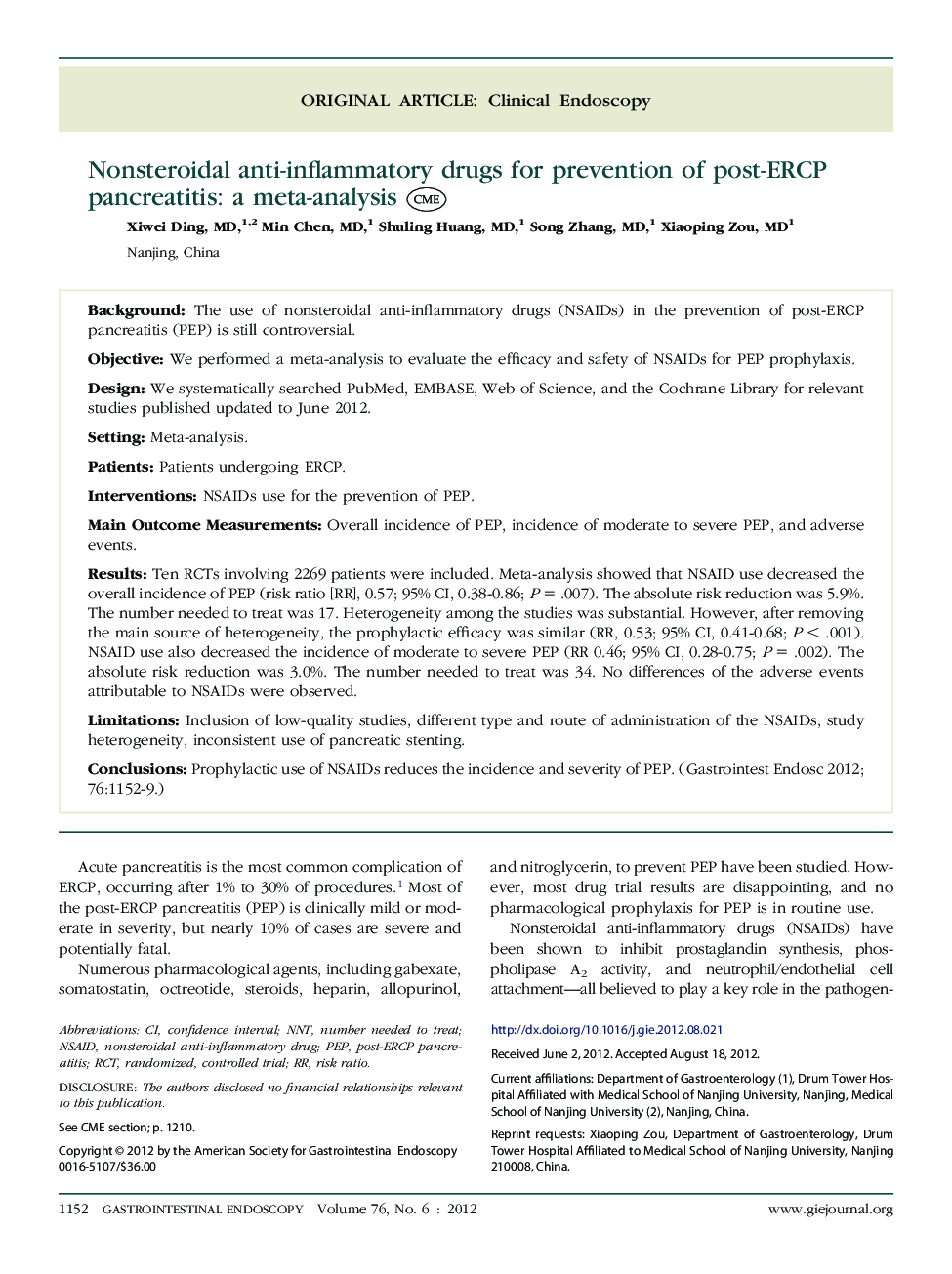| Article ID | Journal | Published Year | Pages | File Type |
|---|---|---|---|---|
| 3304774 | Gastrointestinal Endoscopy | 2012 | 8 Pages |
BackgroundThe use of nonsteroidal anti-inflammatory drugs (NSAIDs) in the prevention of post-ERCP pancreatitis (PEP) is still controversial.ObjectiveWe performed a meta-analysis to evaluate the efficacy and safety of NSAIDs for PEP prophylaxis.DesignWe systematically searched PubMed, EMBASE, Web of Science, and the Cochrane Library for relevant studies published updated to June 2012.SettingMeta-analysis.PatientsPatients undergoing ERCP.InterventionsNSAIDs use for the prevention of PEP.Main Outcome MeasurementsOverall incidence of PEP, incidence of moderate to severe PEP, and adverse events.ResultsTen RCTs involving 2269 patients were included. Meta-analysis showed that NSAID use decreased the overall incidence of PEP (risk ratio [RR], 0.57; 95% CI, 0.38-0.86; P = .007). The absolute risk reduction was 5.9%. The number needed to treat was 17. Heterogeneity among the studies was substantial. However, after removing the main source of heterogeneity, the prophylactic efficacy was similar (RR, 0.53; 95% CI, 0.41-0.68; P < .001). NSAID use also decreased the incidence of moderate to severe PEP (RR 0.46; 95% CI, 0.28-0.75; P = .002). The absolute risk reduction was 3.0%. The number needed to treat was 34. No differences of the adverse events attributable to NSAIDs were observed.LimitationsInclusion of low-quality studies, different type and route of administration of the NSAIDs, study heterogeneity, inconsistent use of pancreatic stenting.ConclusionsProphylactic use of NSAIDs reduces the incidence and severity of PEP.
